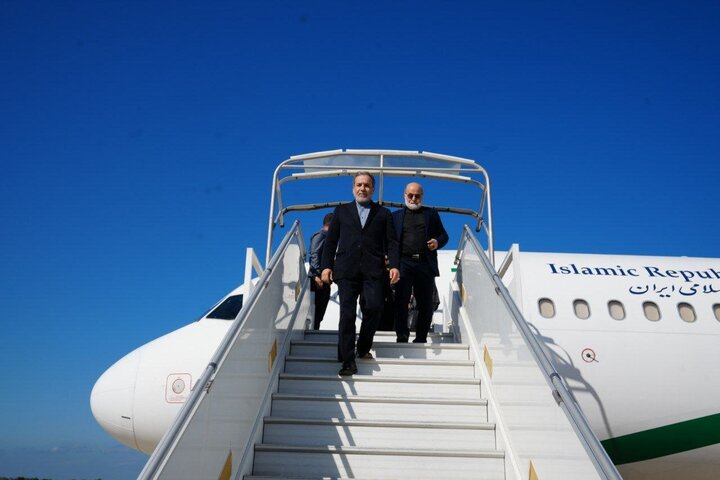
Several factors added to consternation regarding the safety of the top diplomat in Lebanon. Just days before Araqchi’s arrival, an Iranian plane was prevented from landing in Beirut due to Israel threatening to strike both the aircraft and the airport.
The regime had escalated its terrorist activities in Lebanon following the assassination of Hezbollah Secretary-General Sayyed Hassan Nasrallah and simultaneously, it was – and still is – gearing up to respond to Operation True Promise II, which saw Iran launching over 180 ballistic missiles at Israeli military bases in occupied territories.
In his remarks after meetings with Lebanese officials, Araqchi seemed largely nonchalant about the potential Israeli threats to his life. “I am in Beirut—alongside members of our Parliament and Red Crescent Society—to make clear that Iran will always stand with the people of Lebanon. We invite other regional governments to also display steadfastness in their support for Lebanon, especially amid the onslaught by the Israeli regime.”
Offline, he displayed the same calm demeanor while speaking with reporters on the sidelines of his meetings. When a journalist asked if he felt anxious about the potential risks he might face, he replied: “I have a duty and I must fulfill it. Besides that, this isn’t our first time encountering terrorism and war. Our will is stronger than [Israeli] bombardments.”
Araqchi made his trip a regional tour by deciding to stop by Damascus instead of returning to Tehran. There he sat down with Syrian Foreign Minister Bassam al-Sabbagh and President Bashar al-Assad.
“Iran will continue to support Syria as well as other fronts of the Axis of Resistance,” the foreign minister told Assad. “This commitment is essential for maintaining peace and stability in the region and for ensuring the national security of Iran, as well as its neighboring countries.”
The Syrian President, for his part, commended Iran’s “strong stance” in defending regional powers especially Palestine, emphasizing West Asia’s right to self-determination. He did, however, note that comprehensive international effort is still needed to effectively put an end to Israeli aggressions in the region.
Why are Araqchi’s latest foreign visits important?
When you consider the fact that Araqchi is a foreign minister and that both Syria and Lebanon are Iran’s close allies in the region, him spending a day in each of those countries may seem inconsequential. But the dangers posed to his life during the visits, along with another public appearance made by Iran’s Leader make them all the more salient.
“Araqchi’s trip to Beirut broke the political and economic siege Israel was hoping to impose on Lebanon through constant bombardments and the spread of insecurity. The foreign minister’s courage is commendable.” Said Hossein Pak, an Iranian journalist reporting from southern Lebanon since last October.
Araqchi’s subsequent visit to Syria was seen in the same light, as the Israeli regime has upped violence against all countries characterized as members of the Axis of Resistance.
In Tehran, Leader of the Islamic Revolution Ayatollah Seyyed Ali Khamenei appeared in front of tens of thousands of Iranians on Friday to lead the Friday prayers. He delivered two sermons, one in Persian and one in Arabic, addressing the situation in the region, as well as Iran’s Tuesday operation against the regime, which followed a series of Israeli terrorist attacks that killed Hamas leader Ismail Haniyeh in July, and Hezbollah’s Nasrallah in late September.
“Our armed forces responded to the Israeli regime’s recent actions with a measured response. We consider this a minimal punishment for the crimes committed by a regime that has shown itself to be aggressive and violent,” the Leader told the sea of worshippers. “As we have demonstrated in the past, we are prepared to respond again, if necessary,” he added, repeating a similar vow he made in April following Tehran’s first-ever direct attack against Israeli targets in the occupied territories from Iranian soil.
Analysts suggest that Operation True Promise II, Araqchi’s trip to Lebanon and Syria, and Ayatollah Khamenei’s leadership of the Friday prayers in over four years, amid concerns of potential Israeli strikes, were coordinated moves to thwart Zionists’ attempts to whittle away at Resistance forces by creating fear and terror. Iranians getting baited into a fear trap after the assassination of top Resistance figures across the region would have decoupled them from the rest of the Axis, and given regional forces the impression that Iran has left them.
First Published by Tehran Times